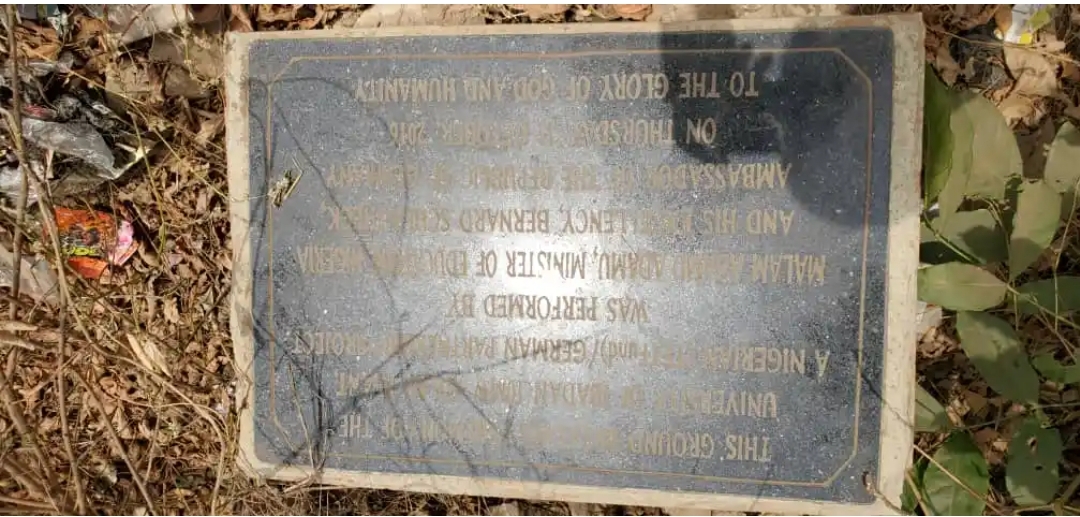By Aare Adebayo, Development News Nigeria
In October 2016, the Nigerian government inaugurated the first of its proposed 37 mega solar power projects in the country at the University of Ibadan.
This project which was initiated in partnership with the German Government through the Tertiary Education Trust Fund (TETFund) was aimed at getting the university off the national grid.
The University of Ibadan’s solar power plant, once operational, would generate 10 megawatts of renewable electricity for the institution. The power plants were expected to generate enough electricity for universities to enjoy 24 hours uninterrupted power supply through clean and renewable energy, and the University of Ibadan Solar Power project was billed to be the pilot for the first phase of the project.
If it had been executed, the project would have saved Nigeria’s premier University, an annual expenditure of over N100 million in electricity bills and contributed largely to the fight against climate change.
The project would also have served as a good opportunity for practical learning and research for students of various departments of the university’s faculties of technology and agriculture.
The former vice-chancellor of the University had in a 2016 interview said that the project completion time was estimated at six month.
Development News Nigeria investigation however reveals that six years after the launch, the project remains non-existent.
The move to power Nigeria’s tertiary institutions with solar power is a project of the Rural Electrification Agency (REA) under its ‘Energizing Education Programme’, EEP.
EEP is now in its second phase and according to details on the Rural Electrification Agency’s website, phase one of the project was expected to deliver 28.5 megawatts to nine federal universities and a teaching hospital.
On the current status of EEP Phase 1, the REA also noted that all project sites have received complete “mobilization payment” and “full second payment” from the sovereign green bond fund and the federal government.
Interestingly, the agency’s website did not list University of Ibadan as one of the project sites for Phase 1. This is despite media coverage of the groundbreaking ceremony held in 2016. Universities listed for phase one are; Alex Ekwueme Federal University Ndufu-Alike Ikwo (AE-FUNAI), Ebonyi state; Bayero University, Kano state (BUK), Federal University of Petroleum Resources (FUPRE), Delta state; Obafemi Awolowo University (OAU) Ile-Ife and University of Lagos (UNILAG); Nnamdi Azikiwe University, Anambra state; Usmanu Danfodiyo University, Sokoto (UDUS); Federal University of Agriculture, Makurdi, Benue and Abubakar Tafawa Balewa University, Gubi Campus, Bauchi.
There is also no mention of University of Ibadan for Phase two of the project.
Project Site Overtaken by Weeds
During a visit to the site of the project where the groundbreaking ceremony was held in October 2016, Development News Nigeria observed that the place has been taken over by weeds.
All the solar panels used during the inauguration were no longer there. The only indication that such a ceremony was held and that it was the project site is the plaque.
Development News Nigeria observed that a portion of the project site has become a dump site.
Procurement Violation
Development News Nigeria investigation also revealed that the project which was estimated at N5.4 billion was awarded in violation of the Public Procurement Act of 2007.
There was no budgetary provision for the contract and that violates section 16 (1b) of the procurement law. It states that “Subject to any exemption allowed by this Act, all public procurement shall be conducted based only on procurement plans supported by prior budgetary appropriations …”
Also, the company, Dantata Solar Limited was incorporated in 2016, the same year that the contract was awarded, contrary to a minimum of three years of operation with tax clearance that is required of any company for such a contract.
Silence From Stakeholders
When contacted, the Public Relations Officer of the University of Ibadan, Adejoke Akinpelu bluntly refused to speak on the project.
Akinpelu later directed the reporter to the university’s Electrical Engineer Faloseyi Segun who declined to comment on the project.
The contractor Dantata Solar Limited, Rural Electrification Agency and Federal Ministry of Education did not respond to requests for comment.
This report is supported by Civic Media.
